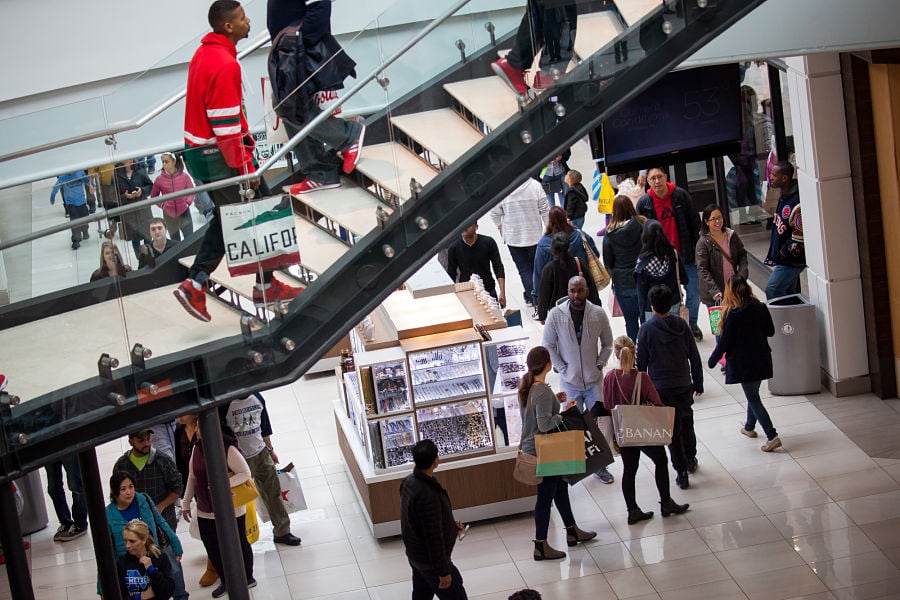

The private real estate market, unlike publicly traded securities that price in real time, faces an uncertain future, but one that is not necessarily all bad, despite the punishing impact of the COVID-19 pandemic.
“Public markets precede distress in the private markets,” Alli McCartney, founding partner of Alignment Partners at UBS, said during a Wednesday webinar on how the various real estate sectors could recover and evolve in the wake of the coronavirus.
While most private real estate, including real estate investment trusts, has not priced since the end of March, market experts warn against throwing a blanket over the entire category. Instead, they suggest looking for winners across and within the subsectors.
The retail sector, for example, which represents 8.7 billion square feet of real estate in the United States, could lose about 2.5 billion square feet of retail tenants amid the extended lockdowns, said Joyce Storm, founder of Storm Partners.
“What would have taken 10 years to work its way out of the system took about 10 days,” Storm said. “About 20% to 30% of businesses will not reopen. It’s painful and unprecedented, but it’s an acceleration of what was going to happen. Some of what we’re experiencing is the extinction of the department store. Basically, the concept of a 200,000-square-foot Macy’s anchoring a mall is over.”
Storm, who talked about the potential winners and losers from the economic fallout of the pandemic, said that of the 1,200 malls in the U.S., “400 have a reason to exist and have had enough capital infused in them over the past few years to have a path forward.
“You take those malls and bring them back to being the heartbeat of a community,” she added. “The most difficult retail category are the malls.”
Major metropolitan areas are not immune to the impact on retail properties.
“When I first got involved in retail in New York City, you had five retail corridors, and now we have 19 vying for that same retail client,” Storm said.
Commercial office space paints a slightly different picture, according to Bethany Ropa, managing director at UBS.
Nationwide, rent was collected for over 90% of office space in April, which compared to 60% for retail in general, and between 15% and 30% for malls, Ropa said.
“The office sector looks more stable, but the question for offices is the longer-term impact,” she said. “Does this mean less or more office space going forward?”
While some could argue that less office space will be needed as more employees continue working from home, Ropa said the retrofitting of offices to accommodate increased social distancing could require more square footage at some businesses.
“The negatives are the longer people work from home, the more they get used to it,” she said. “There will be a shift away from high-density markets and new safety standards. Some landlords will be able to do that and there will be bifurcation between those that can afford to retrofit offices, and others that won’t have the capital to do that.”
The multifamily real estate sector has been healthy so far because people still have the money to pay their rent, Ropa said. The wild card is whether that rent will continue to come in if the tenants lose their jobs and their unemployment benefits.
“We’re seeing people make the effort to pay their rent,” Ropa said. “People will pay for the space they’re using right now.”
But even as she sees multifamily as resilient, Ropa said the sector's strength going forward will depend on the ability of landlords to raise rents while facing rising taxes and insurance costs.
“We also expect people will continue moving out of big city centers,” she said.
The lodging sector presents an interesting twist, according to the panelists, because this category took the most direct hit from the forced economic slowdown.
“Unlike office space that has long leases, lodging is more optional,” Ropa said.
While hotels have seen a slow pickup in business, it has been mostly limited to destinations that are accessible by car.
“We saw 60% to 75% occupancy rates during the weekend of May 16 in places like Daytona, but places like Hawaii are still in the teens,” Ropa said.
The recovery has been stronger among economy hotels, which are often used as apartments.
“For the recovery on lodging, we expect to see leisure travel come back first, then individual business travel, then group travel, and we don’t expect group travel to come back until there is a vaccine,” Ropa said. “Large conference hotels are not expected to see a comeback until mid-2021.”
She noted, though, that “REITs were in much better shape going into this crisis than they were going into the last crisis.”
Real estate funds today still have access to capital and the ability to “pull back on plans for external growth,” Ropa said. “They have battened down the hatches to make sure they can live to fight another day.”
In some cases, living to fight another day could mean seeking the refuge of bankruptcy protection, which should be viewed as a viable option, Storm said.
“I think there will be 40 or 50 big bankruptcies in the retail space over the next year,” she said. “If you’re not considering using bankruptcy as a cleansing, you’re being irresponsible. And there’s no stigma because you can blame it on COVID-19.”

Relationships are key to our business but advisors are often slow to engage in specific activities designed to foster them.

Whichever path you go down, act now while you're still in control.

Pro-bitcoin professionals, however, say the cryptocurrency has ushered in change.

“LPL has evolved significantly over the last decade and still wants to scale up,” says one industry executive.

Survey findings from the Nationwide Retirement Institute offers pearls of planning wisdom from 60- to 65-year-olds, as well as insights into concerns.
Streamline your outreach with Aidentified's AI-driven solutions
This season’s market volatility: Positioning for rate relief, income growth and the AI rebound
